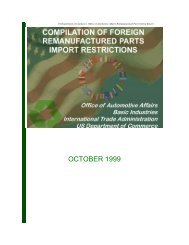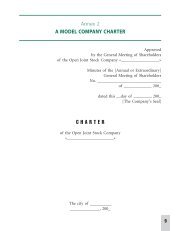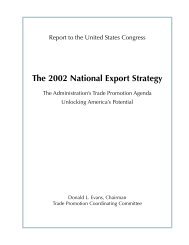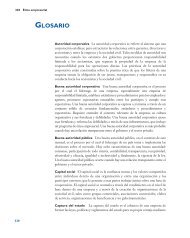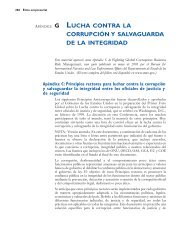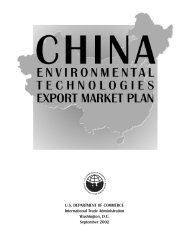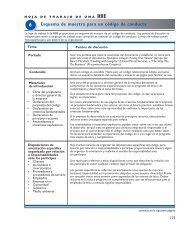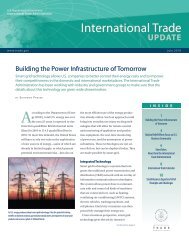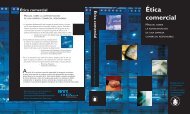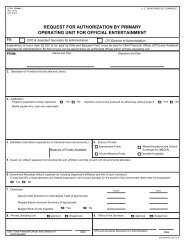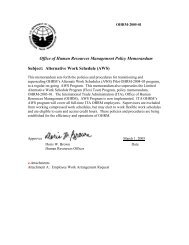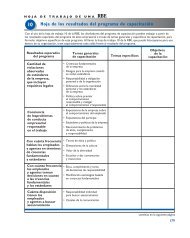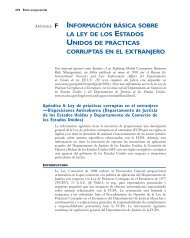Global Steel Trade; Structural Problems and Future Solutions
Global Steel Trade; Structural Problems and Future Solutions
Global Steel Trade; Structural Problems and Future Solutions
Create successful ePaper yourself
Turn your PDF publications into a flip-book with our unique Google optimized e-Paper software.
to the use of government funds, foreign investment has been a significant factor in the recapitalization of the<br />
domestic banking sector. Notably, the International Finance Corporation invested $152 million in Hana Bank,<br />
Germany’s Commerzbank acquired a 30 percent equity stake in Korea Exchange Bank for $249 million, <strong>and</strong> ING Group<br />
purchased a 10 percent stake in Housing <strong>and</strong> Commercial Bank for approximately $280 million. Park, Financial Sector,<br />
27–28; OECD-Korea, 16; IMF Country Report, 72–76; Korea Letter of Intent <strong>and</strong> Memor<strong>and</strong>um of Economic Policies,<br />
November 24, 1999, 6.<br />
76. Michael Schuman, “South Korea Risks Deepening Crisis As Ailing Firms Cling to Old Patterns,” The Wall<br />
Street Journal, March 13, 1998.<br />
77. The principal objectives in the reform measures include: 1) strengthening accountability in management <strong>and</strong><br />
strengthening the rights of minority shareholders; 2) enhancing transparency; 3) eliminating cross-debt guarantees<br />
between firms affiliated with the chaebols; 4) liberalizing capital markets <strong>and</strong> foreign direct investment; <strong>and</strong> 5)<br />
improving insolvency procedures.<br />
To address accountability problems, Korea amended its Commercial Code in 1998 to strengthen the rights of<br />
minority shareholders to counterbalance the leverage exercised by the large shareholders, who are typically family<br />
members of chaebols. Voting right restrictions for institutional investors were abolished, cumulative voting was<br />
introduced <strong>and</strong> ownership thresholds to institute derivative suits were lowered. To increase the accountability of<br />
management <strong>and</strong> Board of Directors, the Commercial Code was amended to require listed companies 1) to appoint<br />
outside directors to fill one-fourth of their board seats <strong>and</strong> 2) to disclose the election <strong>and</strong> dismissal of any outside<br />
director. Further amendments in the Commercial Code clarifies the fiduciary duty of directors <strong>and</strong> permits class action<br />
suits against directors.<br />
To address Korea’s lax transparency requirements, the government took various steps to improve the quality<br />
<strong>and</strong> timeliness of financial statements, such as: 1) m<strong>and</strong>atory consolidated group financial statements for the top<br />
30 chaebol; 2) quarterly reporting for listed companies; <strong>and</strong> 3) for listed companies affiliated with the top thirty<br />
chaebols establishment of audit selection committees within the company that include outside directors <strong>and</strong> major<br />
creditors <strong>and</strong> shareholders. In addition, the government amended the Financial Accounting St<strong>and</strong>ards Act in<br />
December 1998 to reflect international accounting st<strong>and</strong>ards. Significant changes include: “[1] the elimination of<br />
deferrals for realising assets <strong>and</strong> liabilities; [2] the introduction of new rules for the accounting of derivatives; [3]<br />
the adoption of limits on asset revaluation; <strong>and</strong> [4] a reduction in the scope for shifting between different<br />
accounting st<strong>and</strong>ards in corporate accounts.” Also, listed companies with assets in excess of W 100 billion must<br />
now appoint a full-time statutory auditor. Lastly, the role of the Korea Institute of CPAs (KICPA) as an<br />
independent professional auditing body has been enhanced, <strong>and</strong> it is now entrusted with the regulation of the<br />
auditing profession.<br />
In order to address problems caused by cross-debt guarantees, following the crisis, Korea made amendments to<br />
the Fair <strong>Trade</strong> Act to prohibit new guarantees among chaebol affiliates <strong>and</strong> to require that existing guarantees be<br />
phased out by March 2000. The OECD notes that approximately half of the guaranteed loans reached maturity before<br />
2000, but that the removal of guarantees on certain of the 30 percent that expire in 2000 <strong>and</strong> the remaining 20 percent<br />
that expire the following year will require negotiations between banks <strong>and</strong> the companies extending the guarantees. A<br />
few of the measures to dispose of these guarantees include assessing additional interest on the loan, requiring<br />
advance payment of principal, requiring guarantees from owners of companies <strong>and</strong> conversion into real estatesecured<br />
loans. The government has also ordered affiliates of the top five chaebols to remove their guarantees<br />
between affiliates in different industries, for concern that such practices may complicate corporate restructuring. To<br />
address the problem of chaebol’s extremely high level of corporate debt, the government required each of the top 64<br />
chaebols to complete agreements, called Capital Structure Improvement Plans (CSIPs), with their creditor banks to<br />
reduce debt to equity levels to 200 percent.<br />
The government, in December 1997, liberalized capital markets <strong>and</strong> its foreign investment regime. The<br />
objective was to encourage companies to seek much needed capital by tapping equity <strong>and</strong> corporate bond<br />
markets, thereby reducing bank financing <strong>and</strong> creating a more balanced capital structure. The following measures<br />
were implemented: “[1] ceilings on foreign investment in equity, bond <strong>and</strong> money markets were completely<br />
eliminated; [2] restrictions on corporate borrowing abroad were lifted; [3] foreign ownership in most industries,<br />
including financial industries, was fully liberalized; [4] a “one-stop service” was established to simplify the<br />
approval process for foreign investment; [5] hostile takeover rules <strong>and</strong> other anti-takeover devices to protect<br />
existing management were removed; [6] asset-backed securitization vehicles <strong>and</strong> mutual funds were permitted; [7]<br />
restrictions on foreign investors to purchase l<strong>and</strong> for investment projects were eliminated.” See IMF Country<br />
Report, 91–115, OECD-Korea, 34–36.<br />
78. OECD-Korea, 62–63; World Bank–Korea, 12.<br />
226 <strong>Global</strong> <strong>Steel</strong> <strong>Trade</strong>: <strong>Structural</strong> <strong>Problems</strong> <strong>and</strong> <strong>Future</strong> <strong>Solutions</strong>



